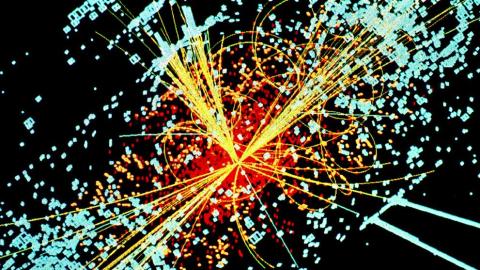Scientists Closer than Ever to Discovering Higgs Particle

What’s the Latest Development?
Ahead of a major physics conference to take place mid-July in Melbourne, Australia, scientists at the Large Hadron Collider have concluded analyzing data that may contain evidence of the Higgs boson. “There has been widespread speculation that a major announcement on the Higgs, based on careful analysis of the most interesting of over 300 trillion proton collisions in the LHC so far this year, may be made at that gathering.” Scientists at the two LHC labs searching for the Higgs, named ATLAS and CMS, have been ‘blinded’ from each others’ work to keep the teams from accidentally influencing one another’s conclusion.
What’s the Big Idea?
The Higgs boson is an elusive yet essential part of the Standard Model, a set of equations which purport to describe the elemental physical laws that govern the Universe. The role of the LHC in confirming the validity of those equations is to smash fundamental particles together at such high energies that the machine can replicate what the Universe was like immediately after the Big Bang. The Higgs particle itself is so short-lived that it can only be detected by the traces it leaves. It is thought that the Higgs first gave matter the property of mass, a quality essential to shaping the Universe which began some 13.7 billion years ago.
Photo credit: Wikimedia Commons





